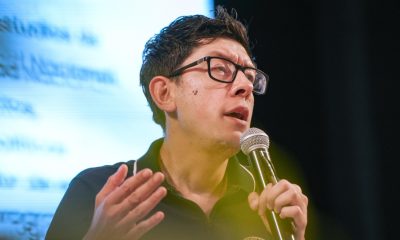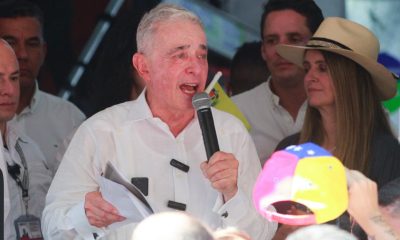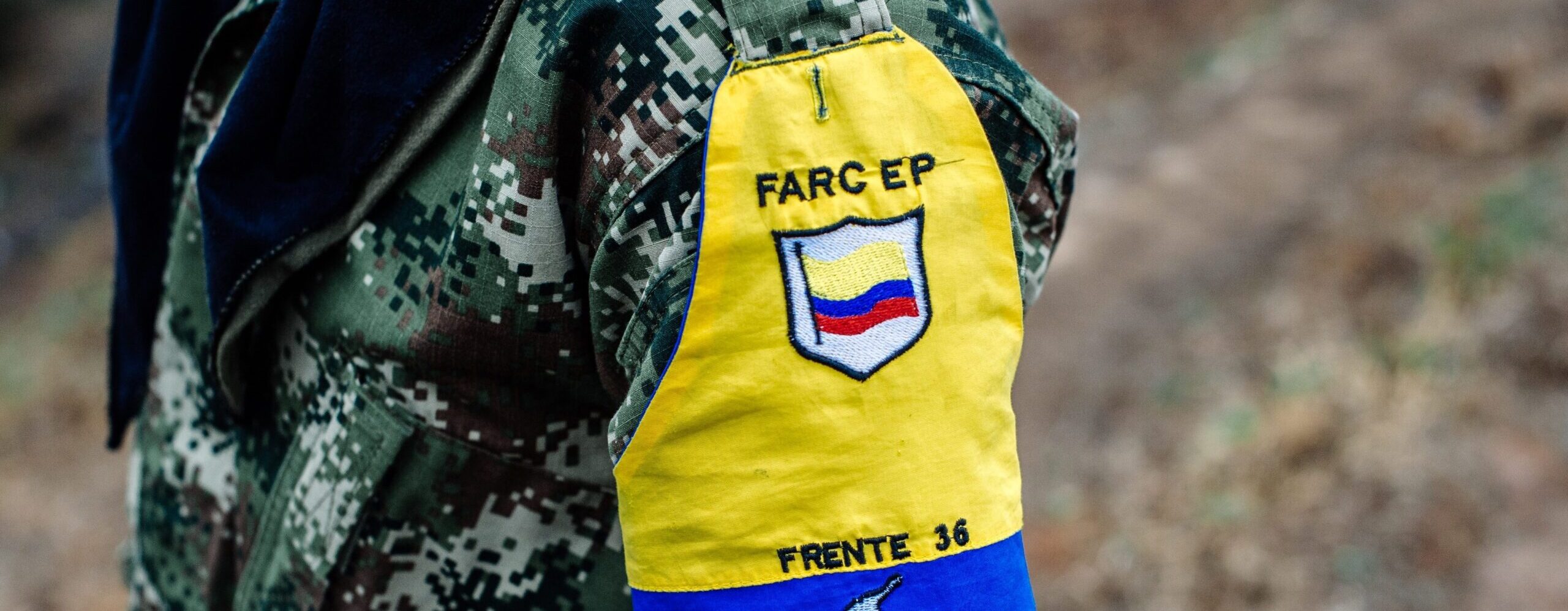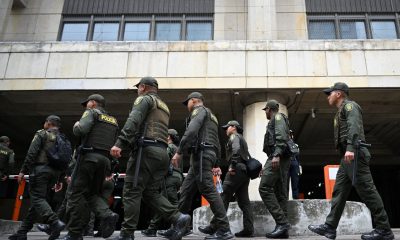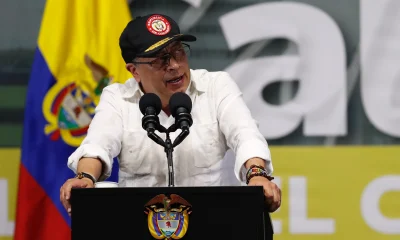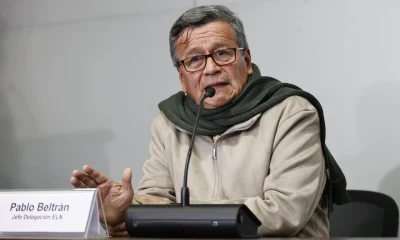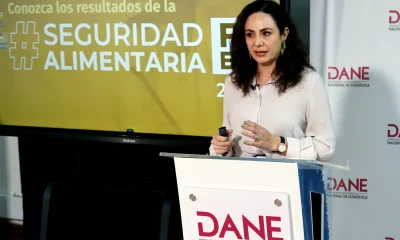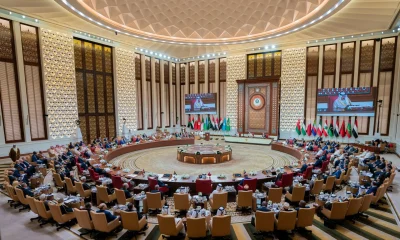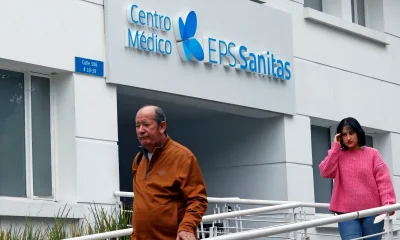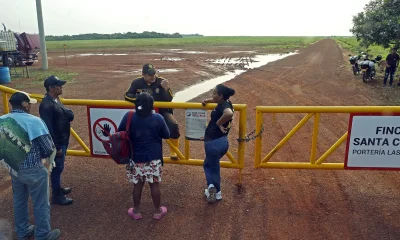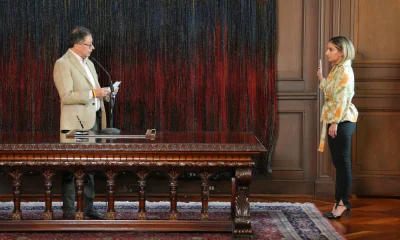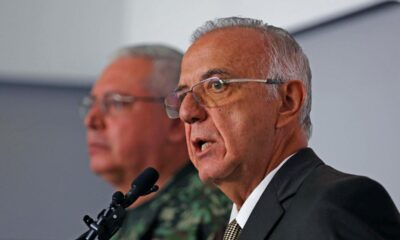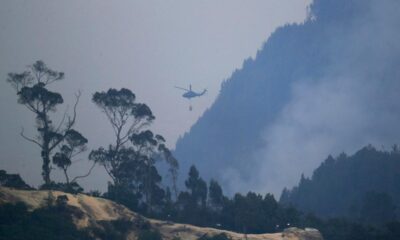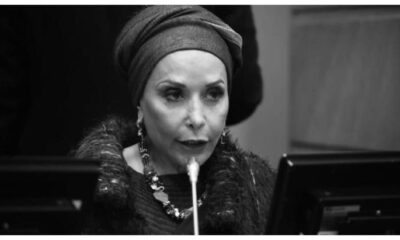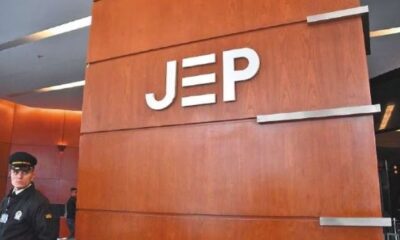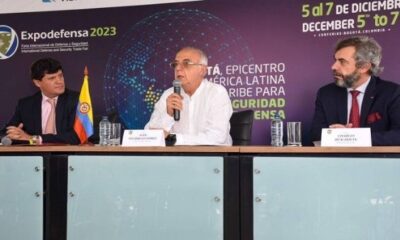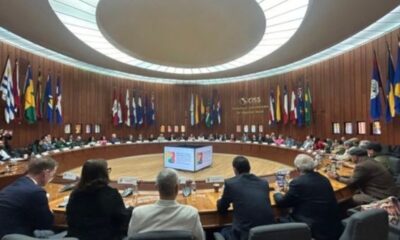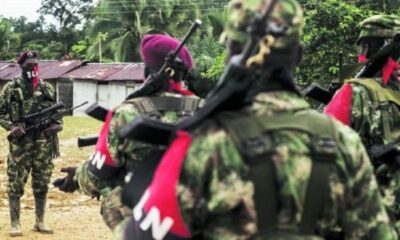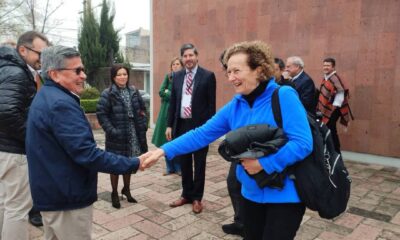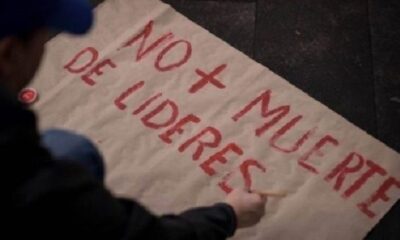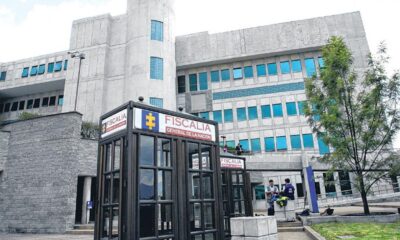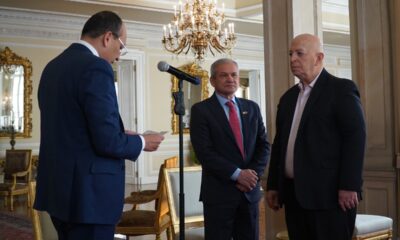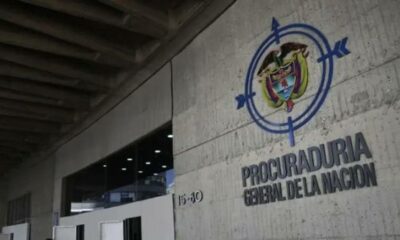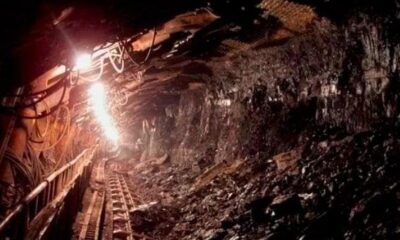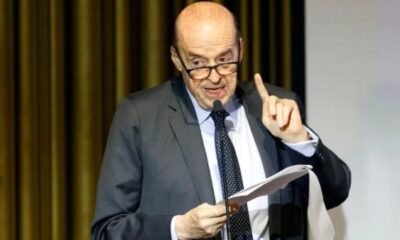International
Petro believes that the regional fronts of the guerrillas should be in the negotiation with the ELN
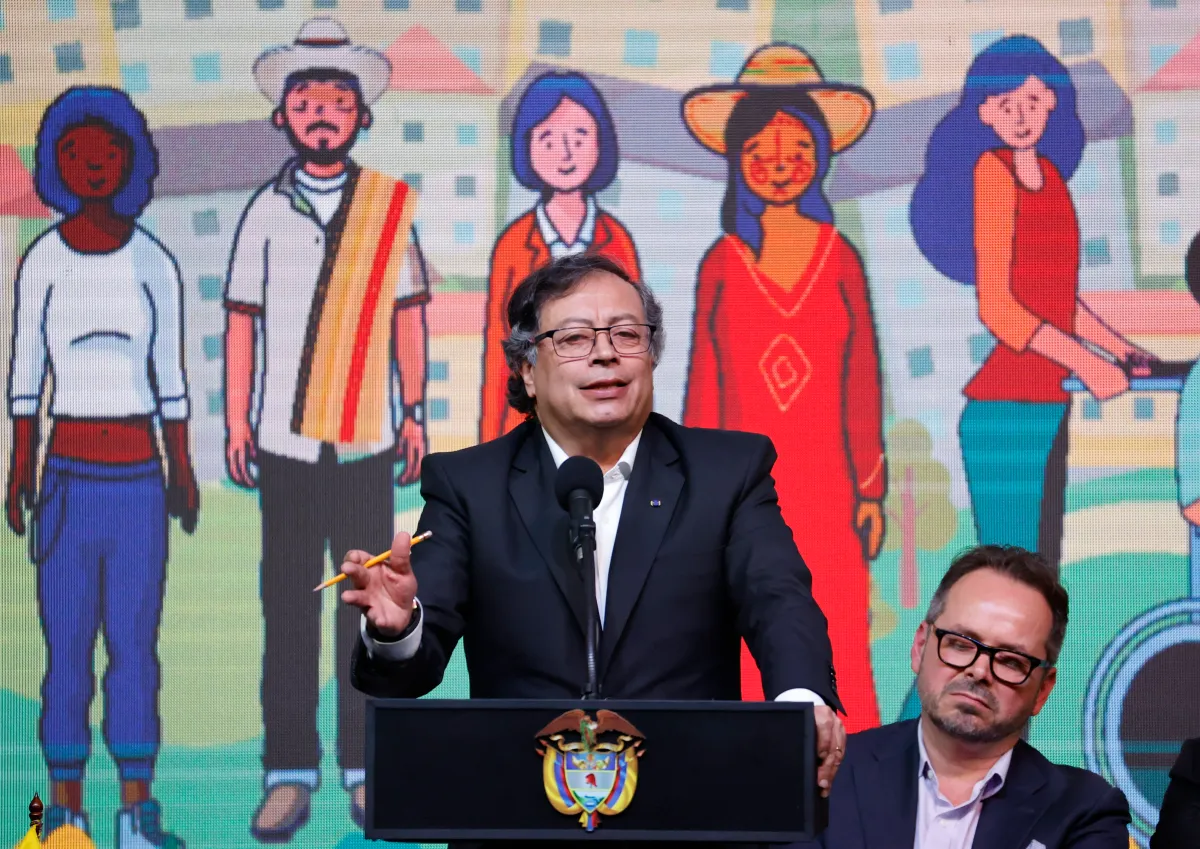
The president of Colombia, Gustavo Petro, considered this Saturday that the regional fronts of that guerrillas should participate in the peace negotiations with the National Liberation Army (ELN), such as the one that operates in the department of Nariño (southwest) and that has unleashed a crisis in the dialogues.
“Without disred of the regional dialogue to build a Nariño in peace that has already begun, my Government maintains the established national table as the stage for peace dialogues with the ELN. It is important that that table has members of the different regional fronts of the ELN to move from dialogue to definitive negotiation,” Petro said on social network X.
Last February, after extending the bilateral ceasefire for six months, during the sixth cycle of dialogues in Havana, the ELN announced that the dialogues were entering a freezing phase, something that was solved days later.
This happened because the guerrillas were opposed by the announcement of the governor of Nariño, Luis Alfonso Escobar, that regional dialogues were going to be held where a front that the ELN said had been infiltrated by state agents was allegedly also involved.
Despite the setbacks, the delegations of the Government and the ELN spoke on Friday in Caracas with representatives of the guarantor countries and companions of the peace negotiations, before the extraordinary meeting that will begin this Saturday, the press team of the armed group assured EFE.
The ELN asked this week for an “extraordinary meeting” instead of the celebration of a normal cycle due to the “critical state” of the peace process that, in the opinion of that armed group, is plunged into a “freezing.”
The Government delegation, led by Vera Grabe, traveled to Caracas on Wednesday, while the guerrilla team arrived on Thursday, led by the head of negotiations, Israel Ramírez Pineda, alias ‘Pablo Beltrán’, and also by the top commander of the ELN, Eliécer Herlinto Chamorro, alias ‘Antonio García’, who is not part of the negotiating delegation.
At the meeting, according to the Government delegation, issues on the agenda will be addressed, such as participation, ceasefire and territorial transformations, as well as substantive decisions on the future of the process.
The negotiations, which were restarted in November 2022 after four years of freezing, have gone through several ups and downs, but both sides maintain a ceasefire that will be in force until next August 3.
Central America
Senator Van Hollen Meets with Deported MS-13 Member in El Salvador; Trump and Bukele React

U.S. Democratic Senator Chris Van Hollen, representing the state of Maryland, held a meeting in El Salvador with deported MS-13 gang member Kilmar Ábrego García, a member of the criminal group classified by the U.S. government as a terrorist organization.
“Kilmar Ábrego García, miraculously resurrected from the ‘extermination camps’ and ‘torture chambers,’ now sipping margaritas with Senator Van Hollen in the tropical paradise of El Salvador!” wrote President Nayib Bukeleon X (formerly Twitter), sharing photos of Van Hollen, Ábrego García, and a lawyer sitting together at a Salvadoran hotel.
The deported gang member is seen wearing a plaid shirt and a flat-brimmed cap, seated at a table with glasses and coffee cups. The senator also shared images of the meeting on his own social media accounts.
Bukele reaffirmed that Ábrego will remain in El Salvador and will not be returned to the United States.
“Now that his health has been confirmed, he has earned the honor of remaining under the custody of El Salvador,” Bukele added.
Former U.S. President Donald Trump criticized the senator’s meeting with Ábrego on Truth Social, calling Van Hollen “a fool” for advocating for Ábrego’s return to the U.S.
International
Pope Francis Appears for Easter Blessing, Calls for Peace and Religious Freedom

Pope Francis, still recovering from pneumonia, appeared on the balcony of St. Peter’s Basilica in the Vatican on Easter Sunday and, with a faint voice, wished a “Happy Easter” to the thousands of faithful gathered to celebrate the Resurrection of Christ.
A month after being discharged from a lengthy hospital stay, the presence of the 88-year-old pontiff had remained uncertain, with the Vatican not confirming his attendance ahead of time.
Eventually, the pope made a brief appearance in a wheelchair shortly after 12:00 p.m. (10:00 GMT) to deliver his traditional “Urbi et Orbi” blessing (“to the city and to the world”).
Although no longer wearing an oxygen cannula, the Argentine Jesuit relied on a close aide to read his Easter message, which touched on major global conflicts.
Francis condemned the “dramatic and unworthy humanitarian crisis” in Gaza and called for a ceasefire, while also expressing concern over the “growing climate of antisemitism spreading across the globe.”
He further emphasized the importance of religious freedom and freedom of thought, stating that without mutual respect, “peace is not possible.”
International
Thousands rally nationwide against Trump’s threat to U.S. democracy

Thousands of protesters gathered on Saturday (April 19, 2025) in major cities like New York and Washington, as well as in small communities across the United States, in a second wave of demonstrations against President Donald Trump. The crowds denounced what they view as growing threats to the country’s democratic ideals.
In New York City, demonstrators of all ages rallied in front of the Public Library near Trump Tower, holding signs accusing the president of undermining democratic institutions and judicial independence.
Many protesters also criticized Trump’s hardline immigration policies, including mass deportations and raids targeting undocumented migrants.
“Democracy is in grave danger,” said Kathy Valyi, 73, the daughter of Holocaust survivors. She told AFP that the stories her parents shared about Adolf Hitler’s rise to power in 1930s Germany “are happening here now.”
In Washington, demonstrators voiced concern over what they see as Trump’s disregard for long-standing constitutional norms, such as the right to due process.
-

 International4 days ago
International4 days agoArsenal stun Real Madrid at the Bernabéu to reach Champions League semifinals
-

 Central America3 days ago
Central America3 days agoNicaraguan Exiles to Mark 7th Anniversary of 2018 Protests with Global Commemorations
-

 International3 days ago
International3 days agoDominican ‘False Hero’ Arrested for Faking Role in Nightclub Collapse That Killed 231
-

 International2 days ago
International2 days agoACLU seeks emergency court order to stop venezuelan deportations under Wartime Law
-

 International4 days ago
International4 days agoBogotá residents line up for yellow fever vaccine amid national alert
-

 International4 days ago
International4 days agoDeSantis’ immigration crackdown sparks alarm in Venezuelan Communities in Doral
-

 Central America2 days ago
Central America2 days agoUN complaint filed against Costa Rica over detention of migrant children
-

 International4 days ago
International4 days agoMexico refuses to restore ties with Ecuador while Noboa remains in office
-

 International22 hours ago
International22 hours agoThousands rally nationwide against Trump’s threat to U.S. democracy
-

 International4 hours ago
International4 hours agoPope Francis Appears for Easter Blessing, Calls for Peace and Religious Freedom
-

 Central America4 hours ago
Central America4 hours agoSenator Van Hollen Meets with Deported MS-13 Member in El Salvador; Trump and Bukele React


















